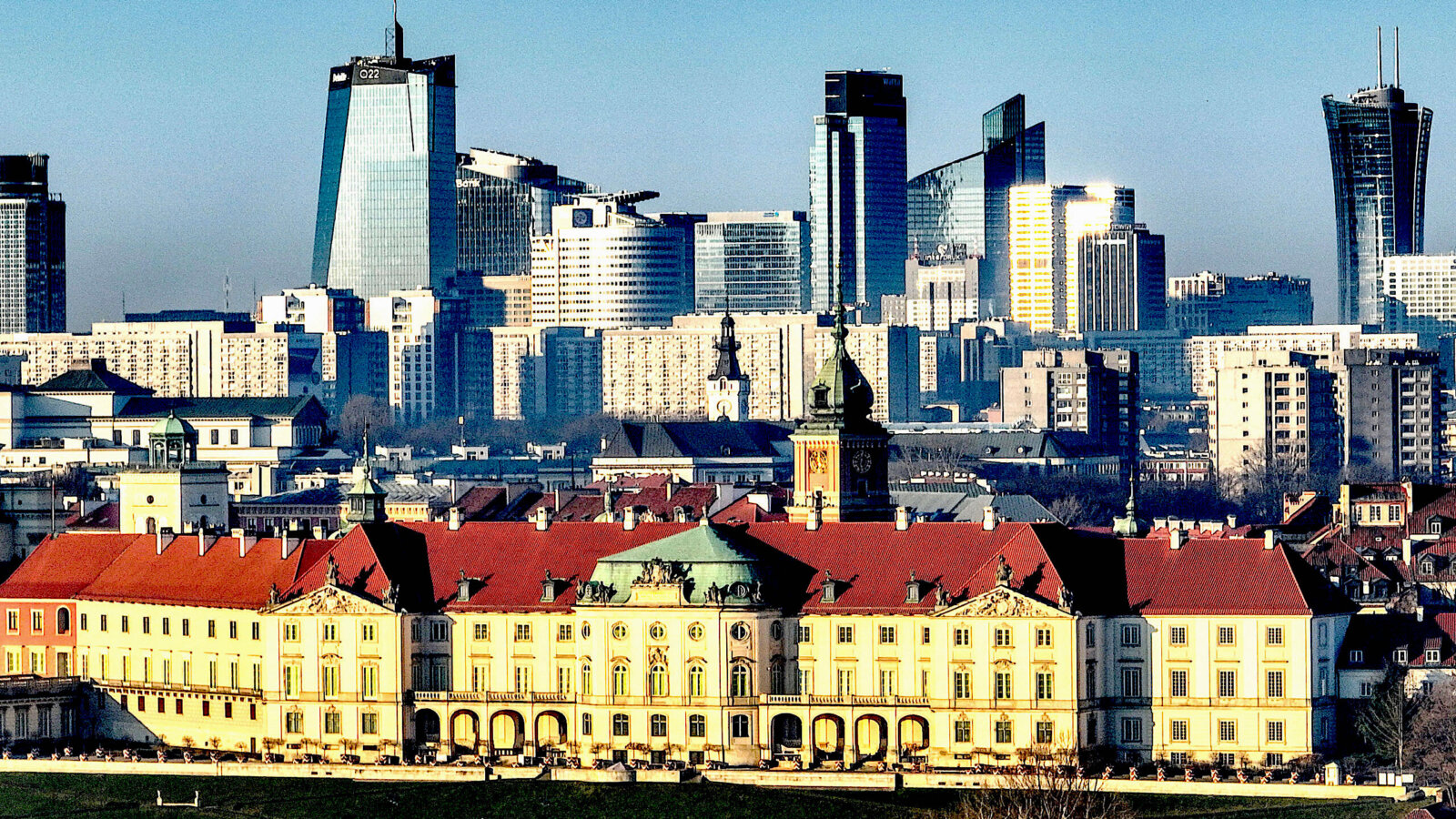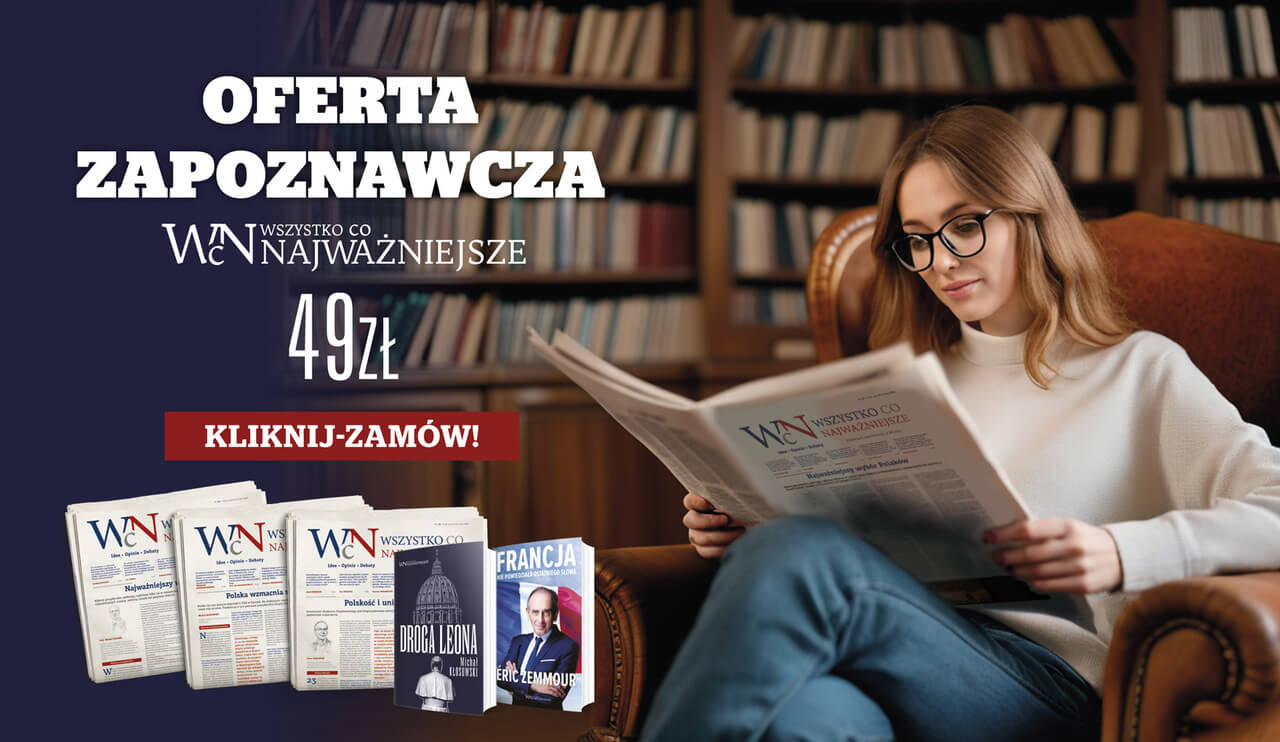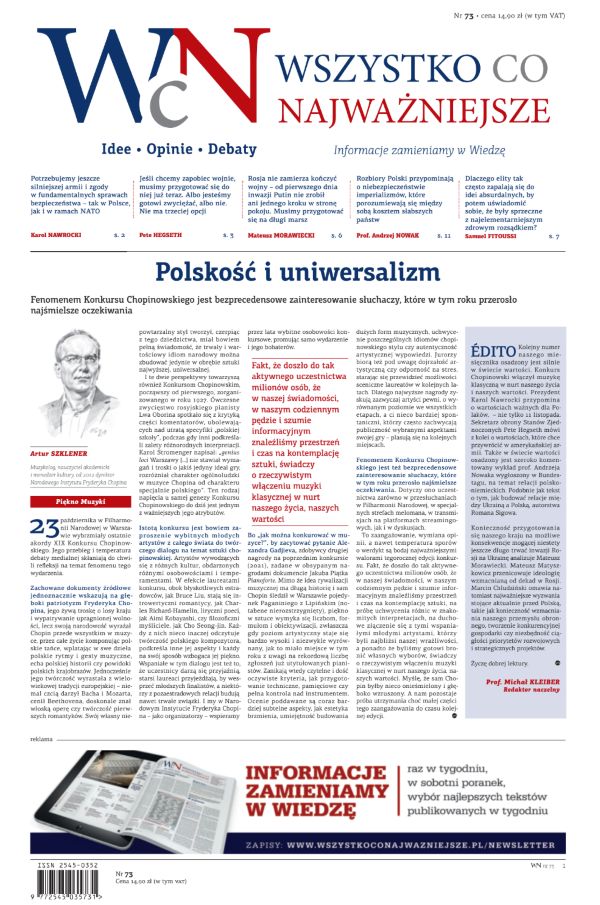
 The Celebration of Free Poles
The Celebration of Free Poles
Throughout the 19th and 20th centuries, Poland was truly independent for barely more than thirty years. This makes the freedom we enjoy today all the more precious to us.
’We are free!’ – joyfully proclaimed Kurier Warszawski. It was 12 November 1918. The day before, in distant Compiègne, the French and British had signed an armistice with the German delegation, ending the bloody battles of the First World War. At that moment, tens of thousands of German soldiers and armed officials were still stationed in Warsaw. Yet they no longer wished to fight – on the contrary, they readily surrendered their weapons even to students and secondary school pupils. ‘Frightened by the revolution that had erupted with elemental force in Berlin and throughout Germany, and shocked above all by the abdication of the emperor and the German princes, they lost their heads’ noted Archbishop Aleksander Kakowski, an eyewitness to these events. ‘Under such circumstances, the disarmament of the Germans went smoothly. The whole country followed Warsaw’s example.’
In Lublin, which until then had been occupied by the Austrians, similar scenes were witnessed by twenty-year-old Jadwiga Orłowska: ‘All military warehouses are now in Polish hands. Poles are driving the cars. […] Children, boys aged 10 to 15, have taken over government buildings and warehouses. The railways and the post office are in our hands. […] Once again, our army – the Polish army – is marching through the streets of the city.’ For Orłowska, it was a time of pure joy: ‘For the first time, I felt what it means to work for myself…’
During those November days, anyone who could see beyond their own nose was wholly absorbed in politics. ‘Science is now being pushed aside, and anyone who buries their head in it like a pillow is ridiculous,’ wrote the eminent Kraków historian Władysław Konopczyński in the heat of the moment. There was no shortage of concern or fear, yet enthusiasm was clearly in the air. ‘At last we are masters in our own country,’ emphasised Kurier Warszawski. ‘At last, after more than 120 years, the time has come when there is no longer a foreign invasion here.’
The Long March to Freedom
.Several generations of Poles had longed for this moment – never reconciling themselves to the fact that, at the end of the 18th century, their country had disappeared from the map of Europe, unable to resist three aggressive empires: Russia, Prussia, and Austria. By the autumn of 1918, the geopolitical situation had finally turned in our favour: Russia was plunged into civil war, Germany teetered on the brink of revolution, and Austria-Hungary was collapsing. Yet there would have been no chance for a lasting breakthrough to freedom without the seeds of the Polish army sown during the First World War, effective diplomatic lobbying in Paris and Washington, and – earlier still – the persistent efforts of the Catholic Church, numerous artists, and countless social activists to keep the spirit of patriotism alive despite the Russification and Germanisation imposed by the partitioning powers.
In November 1918, it was by no means certain what shape Poland’s rebirth would take – or whether its independence would endure. We had to fight the Germans for our western borders in four armed uprisings: the Greater Poland Uprising and three Silesian Uprisings. The greatest threat, however, came from the east – from the Red Army, bringing death, destruction, and civilisational regression on its bayonets. Contrary to their own slogans about the right of nations to self-determination, in the early 1920s the Bolsheviks destroyed the independent states of the Azeris, Georgians, Armenians, and Ukrainians. They sought to do the same to the Poles.
The Battle of Warsaw proved decisive – for Poland and for Europe alike. In August 1920, the Polish Army successfully halted the advance of the bloody red revolution for nearly two decades. The victory of a young state that had only just emerged from triple captivity – its lands ravaged by the First World War – remains underestimated abroad even today. This triumph would not have been possible without great social mobilisation and the wisdom of all major political forces, which, though bitterly divided, managed to act together in a moment of national peril.
In 1939, however, heroic defence was no longer enough. Poland fell victim to a double invasion – first from Nazi Germany and, just days later, from the Soviet Union. A time of terror began, one that did not end for my compatriots with the fall of Hitler’s Reich. After the Second World War, Poland was reborn in name as an independent state, yet for decades remained within Moscow’s sphere of influence. The communists brutally suppressed every attempt at resistance. It was only the peaceful revolution of Solidarity in the 1980s that brought us freedom once again.
Independence Brings Responsibility
.I belong to a generation that grew up at the turn of two eras – the dying days of communism and the dawn of parliamentary democracy. I know how much we owe to previous generations. As a historian and social activist, I have always attached great importance to honouring the heroes of our freedom: the people of Solidarity, the soldiers of the Second World War and the post-war independence underground, and all those who, more than a century ago, fought for and defended Poland’s sovereign statehood.
Celebrated on 11 November, National Independence Day – established to commemorate the events of 1918 – is one of the most important days in the Polish calendar. The Independence March, organised in Warsaw and bringing together a wide range of patriotic groups demonstrating their attachment to the white-and-red flag, has already become a cherished tradition. In previous years, serving my country as President of the Institute of National Remembrance, I took part in the central celebrations on 11 November, attended by the highest state authorities and members of the diplomatic corps. This year, for the first time, I will take part as President of the Republic of Poland.
Independence carries immense responsibility – and today, this is perhaps even clearer than just a few years ago. War, following the Russian Federation’s invasion of Ukraine, has again come dangerously close to our borders. We need an even stronger army and unity on the fundamental issues of security – both within Poland and across NATO. As committed members of Europe, we must at the same time ensure that we remain ourselves – preserving our Polish identity and sovereignty. A country of nearly forty million people cannot serve merely as a production base for larger economies. We must think ambitiously and be capable of great things.
For ourselves and future generations. For Poland.



